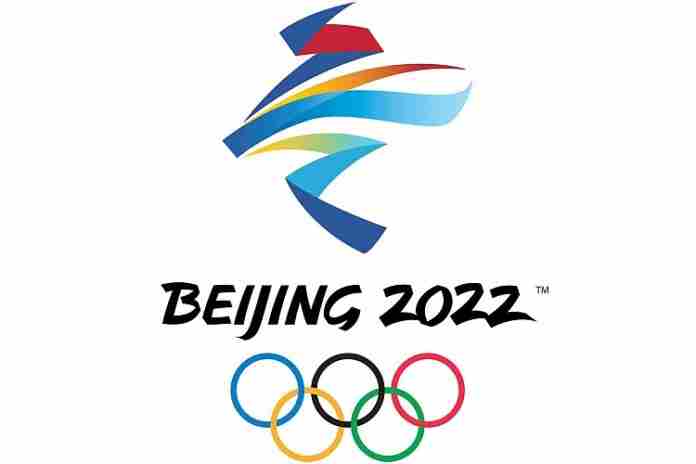★ The Sports Examiner: Chronicling the key competitive, economic and political forces shaping elite sport and the Olympic Movement.★
★ To get The Sports Examiner by e-mail: sign up here! ★
Sometimes, waves portend a storm. Sometimes, waves roll in and just roll back out. Having been involved, observed and tried to help the sport of track and field over multiple decades, a new video perfectly captures the moment we are in right now and must be shared.
Mentioned in our Tuesday post was a seven-minute video from moderneathletes, a 2023 start-up from Florida by principals Sharmila Nicolett and Jerome Green, Jr. and founding athletes Kenny Bednarek and Chris Mueller, the fourth in their “Road to Paris” series, titled simply State of Track, posted on Sunday (7th).
It primarily features sprinter Kyra Jefferson, 28, the 2017 NCAA 200 m champ (in 22.02) for Florida, with contributions from Tokyo Olympic 200 m silver medalist Bednarek and John-Edward Heath, a Para Track & Field athlete who also competes in other sports.
The video is excellent, but to really appreciate the commentary, here is a full transcript:
Jefferson: Track is one of those sports, we don’t make a lot of money, So you can’t compare a sponsorship for basketball, you can’t compare us to Nike football.
Q: How would you explain the sport of track & field?
Jefferson: Track is an amateur sport that just so happens to have professionals in it.
Sixteen [years old] and as long as you run a standard, you could come to our Trials.
Q: Are you’re considered a professional at that point?
Jefferson: Well, that’s the thing that we’ve all been trying to figure out: what determines a professional?
Q: So there’s no standard of, like, you’re either a professional track athlete of you’re not?
Jefferson: Well, it depends because some people say you’re a professional because it means you have a sponsorship. Does that mean that someone who just won an Olympic medal who doesn’t have a sponsorship is not professional?
Professional means you make money. OK, well, NIL [name-image-likeness], I’m in college, I make money. I’m professional, or am I still a collegiate athlete?
Q: You’re saying there’s no threshold for track and field?
Jefferson: For our track and field federation, there is no threshold. If you pay the $40 to get a USATF membership, you can compete at any meet that we at. Any meet that a professional’s at, if you get accepted to the meet.
Although I’m in a Nike [training] group, Nike does not pay my bills. They did for a hot five years; it was very fun, loved it. It’s pretty black and white. You either have a medal or you don’t. You have a medal, Nike’s going to pick you up, adidas is going to pick you up, Puma, New Balance.
If you don’t have a medal, you have to depend on outliers, sponsorships like Essentia or On Running is becoming hot.
Q: Did you notice that and you set yourself up differently, or was you were figuring it out?
Jefferson: My agent pulled me aside and told me, “if you don’t beat these two girls, Nike’s not signing you for anything.” It was very straight, to the point.
Q: Is that how the sport is?
Jefferson: Yeah, pretty much. Most sponsors know who they want by the time they get to national championships. You have to perform well at NCs, or you have to perform well at the U.S. Champs. There’s outliers where, you know, you ran fast, and they’re like, “oh no, we, we [saw you],” but it’s also a test of what have you done lately and can you do it again?
I can run 21 seconds [for 200 m]; can I do it again? Can I do it again against this person? Can I do it at Trials? Can I do it at Worlds? Sometimes they push the finish line further back. That’s the situation I’m kind of in right now.
Q: How do you see your situation going? How do you think through this situation now?
Jefferson: A coach at the USATF Annual Meeting gave the best explanation of track that I’ve ever heard in my life: “Whatever you sign for, the only way to get way more than that is medal, world record, American Record … something outlandish, outstanding, indisputable … oh, you’re great.”
I’m in a situation where bonus contracts are going to be mild. I’m OK with that because that’s the sport. The only way I would get a contract is, I have to win USAs. I have to win a medal. Those are my only options.
Bednarek: Once I became a professional, that’s when I had to start thinking deeper about the sport. I’m learning about the sport as I am kind of in this career right now. Before I become a professional, I really didn’t know much about track & field.
I only knew about Justin [Gatlin], [Usain] Bolt, Yohan [Blake], but now I’m trying to learn about, you know, the agents, because the agents for a track & field athlete are one point, you’ve got coaches for track & field athletes are one point. I’m trying to figure out who’s who, what have they done in the past? How did they get in this position?
Q: Is it a sport where everybody understands everybody’s position? Or is it a sport where like, I gotta get my own?
Bednarek: I think it’s more, I gotta get my own.
Jefferson: I’m a part of the AAC, which is the [USATF] Athlete Advisory Council. I’ve tried to be a part of that and we tried to determine at this last meeting, what is considered a professional athlete because we’re asking for these things, but it’s who [do] they apply to, who gets these things? Who are y’all talking about?
Because we have women and men who are literally top five in the world, with no sponsors.
Q: How does the track and field world operate?
Jefferson: Nobody’s really figured out what’s the best way to do something, because somebody’s going to be left out of the equation.
Like some people can say, OK, the people who should get pay are people who have medals. The person who got fourth is not worthy, because they got fourth, when they could have got third, but this year they didn’t have it?
To make our team, for example, the 200 for the men: nine out of 10, you know who will make the team. There’s maybe one other person, like, oh, they could sneak in. For the 100, you know you can’t predict who’s gonna make that team. For the [women’s] 100 hurdles, you definitely can’t predict who’s gonna make that team. Keni Harrison did not make the Olympic team; a week or two later, broke the world record.
So we use the criteria of who has medals, does that mean Keni doesn’t get money?
Q: Who’s setting the standard?
Jefferson: Well, that’s a good question. We were trying to figure that out. We’ve been trying to figure out what meetings we’re missing where they picked; who decides this?
How do you bring more marketing awareness to a sport that a lot of people think we only compete at the Olympics.
Q: You don’t feel like that’s changed?
Jefferson: With certain athletes it has. It’s brought like certain awareness. I was at the airport and they’re like, “oh my God, are you guys going to the Olympics?” Talking to three Olympians, they were like, “are y’all going to the Olympics?”
Heath: Ninety-five percent of society doesn’t know who just won a medal at the Olympics.
Jefferson: Having no clue who, like, [Tokyo women’s 4×100 m silver winners] Javianne [Oliver] was, having no clue who Teahna [Daniels] was. They literally got a medal from the Olympics, and they like, “oh, y’all run track, so you’re going to the Olympics.”
Anybody can say they’re an Olympian, because nobody knows track, they don’t pay attention enough.
All I got to do is say I’m a professional athlete, and the first question out of everybody’s mouth, “oh, so you’re trying to go to the Olympics?” We, individually, have to educate people like, well, you know Worlds is this year. They have no idea that we’re all training for Worlds in Budapest.
Us, as athletes, we like “Worlds pay more than the Olympics.”
I think that we should have like a minimum, like, hey, everybody at least needs to make $30,000 a year. But how do you do that? How do you determine who are the people that need to all make $30,000 a year?
Q: Do athletes study the numbers and see where the money is going?
Jefferson: I think there are some athletes that understand where the money is going. But the bigger scheme of athletes is like, I-gotta-take-care-of-myself mindset.
Bednarek: I’m looking at who’s making more than me, and I’m like, why aren’t I making more than them? Or making at least close to them because I’ve beaten them several times. That’s how simple it is.
Sometimes I think it’s about competition and other times, it’s just who has the best story. If you want to break records, you put the best people on the team.
Q: If all the athletes stand together …
Jefferson: Stop. Why would you stand with me, if you getting paid and I’m not?
Bednarek: You’re the talk of the town or you’re not, either you’re going to be the next guy or you’re not.
Jefferson: This is not no shade to anybody, but let’s be real. If I got a gold medal, I got two kids, I gotta do what’s best for them. I wish you was getting paid too. I do agree that it’s kind of messed up, but I’m getting paid. I got kids, I gotta to take care of my mom.
It sucks that you’re not getting paid. I do think they should do something. Somebody should do something, as long as it don’t make me have less money. (Host: Right). I’m for it. Like, let’s figure it out.
¶
The comments are hardly new, it’s simply a new generation of athletes who are making them. The professional International Track Association came and went in the 1970s and successor concepts have consistently failed, usually for insufficient capitalization.
World Athletics Council member Willie Banks, the former Worlds silver medalist and world-record holder in the triple jump, explained last July that USA Track & Field is working toward “making a … direct investment in our athletes, meaning payments – a living wage to our athletes.”
The elements are fairly familiar: an actual, dependable salary, health insurance, recognition of the costs of travel and accommodations (if required), training support, coaching, child care for those with families and all the other things that employees expect from employers today.
Superstar Carl Lewis, now the coach at the University of Houston, was demanding these things in the 1980s, but they have not happened. Yet. But there appear to be stronger waves today than in recent years, for example April’s breakthrough Citius Magazine interview by Kyle Merber with Worlds 100 m runner-up Marvin Bracy on the business of track & field athlete sponsorships and Olympic icon Michael Johnson’s recipe on Twitter for moving the sport forward.
It may all just be another occasional, stronger wave. Or it could be something more.
Rich Perelman
Editor
You can receive our exclusive TSX Report by e-mail by clicking here. You can also refer a friend by clicking here, and can donate here to keep this site going.
For our updated, 651-event International Sports Calendar (no. 2) for 2023 and beyond, by date and by sport, click here!

























